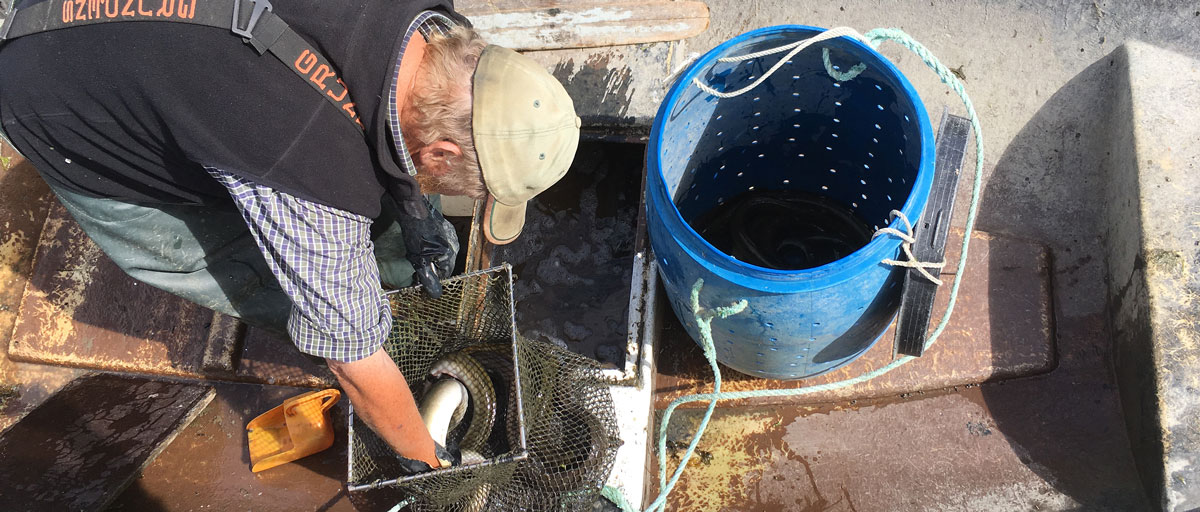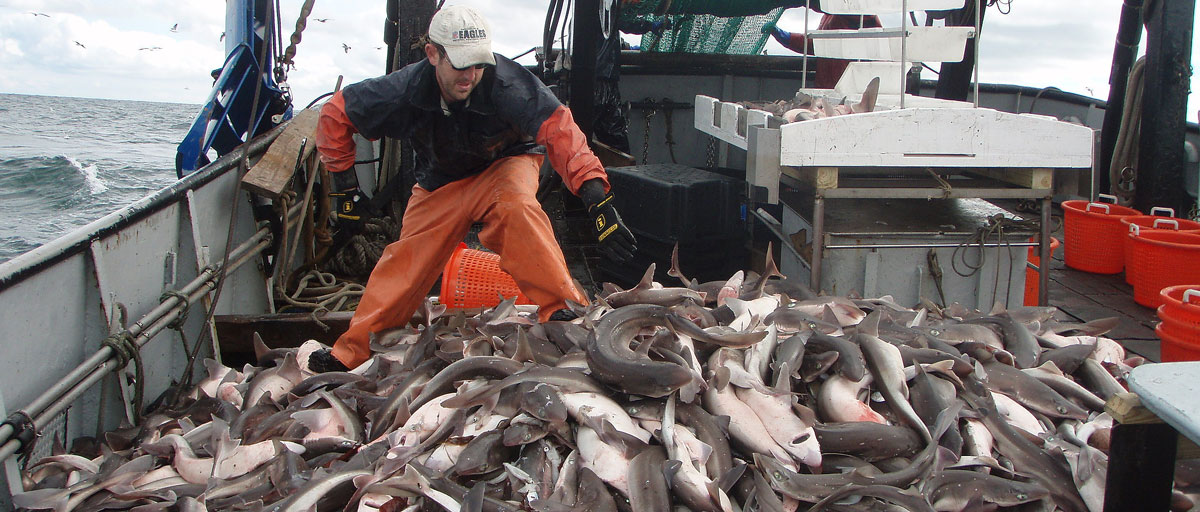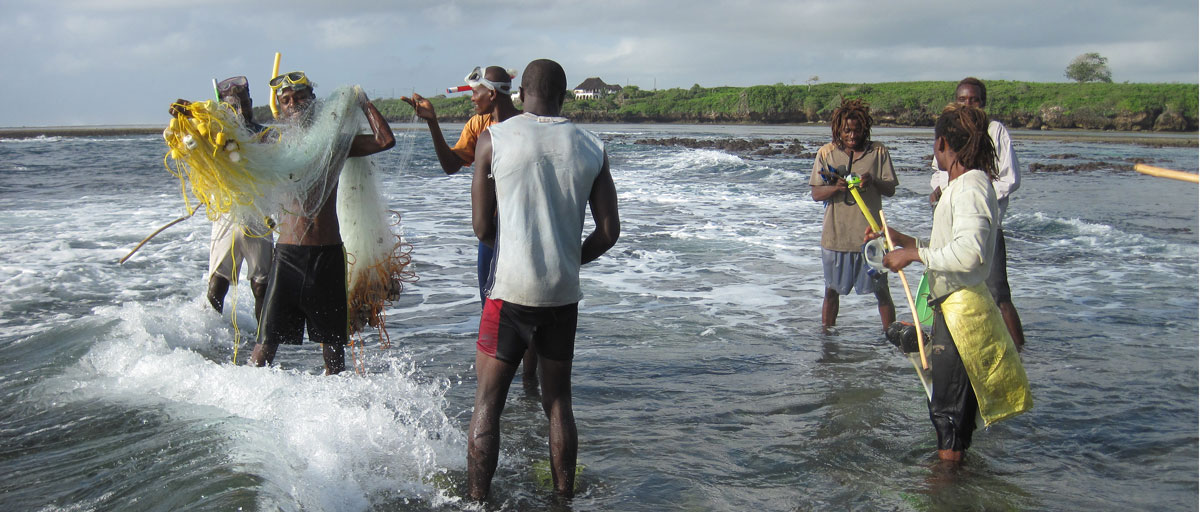Bildtext får vara max två rader text. Hela texten ska högerjusteras om den bara ska innehålla fotobyline! Photo: B. Christensen/Azote
SOCIAL-ECOLOGICAL TRAPS
A long history of unsustainable fisheries

Swedish archipelago fishers in the Baltic Sea have become more and more dependent on the critically endangered European eel to maintain their fishing livelihood. Photo: E. Björkvik
- Swedish archipelago fishers in the Baltic Sea have become more and more dependent on the critically endangered European eel
- Situation can be traced back to the 1930s when fishers chose to intensify fishing for this species to ensure future incomes
- The fishers are stuck in a “social-ecological trap”. The longer this entrapment endures, the more difficult it is to escape it
How Swedish archipelago fishers have come to depend on a species threatened by extinction
LACK OF OPPORTUNITIES, MOTIVATION AND CAPACITY: Unsustainable fishing can be surprisingly persistent despite their devastating social, economic and ecological consequences.
As fisheries anthropologist James McGoodwin once put it: “What is fascinating – and also tragic – about the fishing industry is that it so actively participates in its own annhiliation.”
So why do they continue doing it?
In a study published in Ecology & Society, centre researchers Emma Björkvik and Wijnand Boonstra, together with Jonas Hentati-Sundberg from the Swedish University of Agricultural Sciences, have studied the history of how Swedish archipelago fishers in the Baltic Sea have become more and more dependent on the critically endangered European eel to maintain their fishing livelihood.
The tragedy is not just that fishers contributed to the decline of the resource they depend on, but rather that they lacked opportunities, motivation and capacity to prevent this decline.”
Emma Björkvik, lead author
Chances to escape trap are slim
The researchers found that many Swedish archipelago fishers would probably be forced to quit fishing completely if they could not fish the eel. This situation can be traced back to the 1930s when fishers chose to intensify fishing for this species to ensure future incomes. Today, not much of the eel population is left but solutions are hard to come by.
The fishers are stuck in what the researchers call a “social-ecological trap”. The longer this entrapment endures, the more difficult it is to escape it.
Chances to escape from this trap are slim, according to the researchers. There are two reasons for this. First, the fishers are emotionally, culturally, habitually and legally tied to their fishing grounds and livelihood.Their lives are defined by this work.
Second, Swedish eel fishers represent a relatively small part of the total human pressure to which the eel is exposed.
“That leaves them rather powerless in preventing the eel decline and escaping their own entrapment, at least on their own account.” says Emma Björkvik, the main author of the study.
Manage for diversity
To avoid a similar fate for other place-based fisheries like the Swedish archipelago fishers, Björkvik and her colleagues stress the importance of both fishing and livelihood diversification. Current fisheries management in Sweden discourages this.
“An accumulation of stricter regulations made it more difficult to target multiple species, and the license system incentivized fishers to continue eel fishing,” co-author Wijnand Boonstra explains.
Insights from the study can be used to create policies that offer opportunities for maintaining diversity in fisher livelihoods and Swedish archipelago fisheries in general.
The authors conclude by paraphrasing James McGoodwin: “The tragedy is not just that fishers contributed to the decline of the resource they depend on, but rather that they lacked opportunities, motivation and capacity to prevent this decline.”
Methodology
The researchers reconstructed the historical development of Swedish eel fisheries in the Baltic Sea using both quantitative and qualitative data. The quantitative data includes Swedish official fisheries statistics on catches, number of fishers, gear value and fish price, covering the years between 1931 and 2016.
The qualitative data was used to explain trends in the statistical material, and comprises semi-structured interviews with eel fishers and fisheries experts and two published ethnographic studies of eel fishers in Kalmar County.
The fishers interviews were performed during 2013 in the fishers’ homes, and all interviewees had been fishing eel for more than two decades.
Björkvik, E., W. J. Boonstra, and J. Hentati-Sundberg. 2020. Why fishers end up in social-ecological traps: a case study of Swedish eel fisheries in the Baltic Sea. Ecology and Society 25(1):21.
https://doi.org/10.5751/ES-11405-250121










